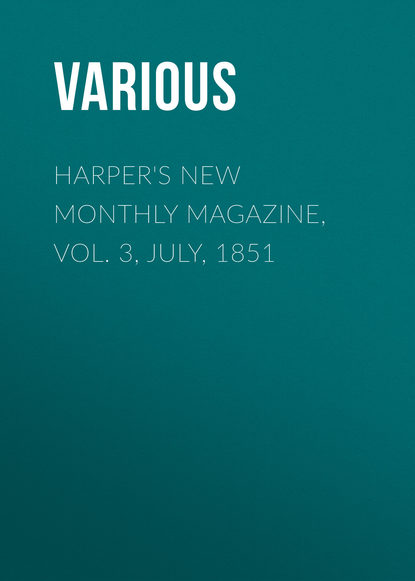По всем вопросам обращайтесь на: info@litportal.ru
(©) 2003-2024.
✖
Harper's New Monthly Magazine, Vol. 3, July, 1851
Автор
Год написания книги
2019
Настройки чтения
Размер шрифта
Высота строк
Поля
"The hunt is up, the hunt is up,
And it is well-nigh daye.
Harry our King has gone hunting
To bring his deere to baye.
The east is bright with morning lighte,
And darkness it is fled,
And the merrie horn wakes up y
morn
To leave his idle bed.
Beholde y
skies with golden dyes,
Are …"
—The rest hath escaped me, albeit I know there was some burden of hey-tantera, where my lord did stamp and snap his fingers. He is a merry heart.
Now that Gunnel is gone, I take to heart that I profited not more by his teaching. Saying to Mercy, overnight, that methought she missed not our good master, she made answer, "Oh yes, I doe; how can I choose but miss him, who taught me to be, to doe, and to suffer?" And this with a light laugh, yet she lookt not merrie.
… Writing y
above, I was interrupted by shrill cries either of woman or boy, as of one in acute payn, and ran forthe of my chamber to learne y
cause. I met Bess coming hastilie out of y
garden, looking somewhat pale, and cried, "What is it?" She made answer, "Father is having Dick Halliwell beaten for some evill communication with Jack. 'Tis seldom or never he proceedeth to such extremities, soe the offence must needs have beene something pernicious; and, e'en as 'tis, father is standing by to see he is not smitten over-much; ne'erthelesse, Giles lays the stripes on with a will."
It turned me sick. I have somewhat of my mother in me, who was a tender and delicate woman, that woulde weepe to see a bird killed by a cat. I hate corporall punishments, and yet they've Scripture warrant. Father seldom hath recourse to 'em; and yet we feare as well as love him more than we doe mother, who, when she firste came among us, afore father had softened her down a little, used to hit righte and left. I mind me of her saying one day to her own daughter Daisy, "Your tucker is too low," and giving her a slap, mighte have beene hearde in Chelsea Reach. And there was the stamp of a greate red hand on Daisy's white shoulder all y
forenoon, but the worst of it was, that Daisy tooke it with perfect immoveabilitie, nor lookt in the leaste ashamed, which Scripture sayth a daughter shoulde doe, if her parent but spit in her face, i.e. sett on her some publick mark of contumely. Soe far from this, I even noted a silent look of scorn, which payned me, for of all the denunciations in Holy Writ, there is none more awfull to my mind than that which sayth, "The eye that mocketh at father or mother," not alone the tongue, but e'en the eye,—"the young ravens of the valley shall pick it out."











